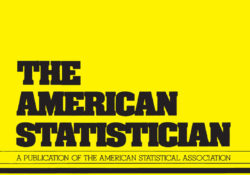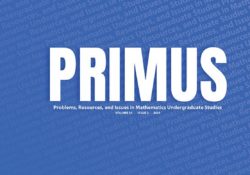
tandfonline.com har udgivet en rapport under søgningen “Teacher Education Mathematics”: Abstract Abstract This article proposes a new research approach to teachers’ lesson planning. While numerous guidelines have been dominating lesson planning as an object of teacher education, we utilize teacher cognition and expertise research to view lesson planning from a different perspective: We argue that lesson planning typically demands specific cognitive skills that teachers must master to create high quality instructional practice. The so-called CODE-PLAN model (cognitive demands of lesson planning) forms the general theoretical framework for our conceptualization of six demands (content transformation, task creation, adaptation to student learning dispositions, clarity of learning objectives, unit contextualization, and phasing) to empirically describe and analyze teachers’ planning competence. We investigate how these demands are met through content analysis of 337 plans… Continue Reading →
Like this:
Like Loading...
tandfonline.com har udgivet en rapport under søgningen “Teacher Education Mathematics”: AIC-type Theory-Based Model Selection for Structural Equation Models Link til kilde
Like this:
Like Loading...
tandfonline.com har udgivet en rapport under søgningen “Teacher Education Mathematics”: ABSTRACT ABSTRACT This article presents an ongoing research project, which researches theatre as a school subject at high school level in Sweden. The study is an example of practice-based research on teaching and learning and uses the model learning study for its research approach. It is argued that knowledge concerning the meaning of knowing the object of learning, in this case “to impose one´s will”, is generated using the model. The results are presented as three categories of description and in an outcome space. The categories describe different ways of knowing the object of learning, in this case how to impose one´s will (what the character wants) with the purpose of developing the capability to consciously communicate with an audience.… Continue Reading →
Like this:
Like Loading...
tandfonline.com har udgivet en rapport under søgningen “Teacher Education Mathematics”: Link til kilde
Like this:
Like Loading...
eric.ed.gov har udgivet: This paper describes the longitudinal impacts of a partnership between the University of Colorado Boulder’s K-12 Engineering Education initiative and the St. Vrain Valley School District. Together, university and high school educators created a replicable pre-college engineering model in a nine-school feeder system, which serves many Colorado students who are traditionally underrepresented in the engineering profession, and culminates with a high school STEM (science, technology, engineering, and mathematics) Academy whose graduates are motivated to thrive in engineering colleges. However, the following question, “Is this an effective model for increasing student STEM persistence and performance?” remains a driver for our investments as we refine the K-12 engineering program based on partner school feedback and quantitative and qualitative assessment results. Data show that our K-12 engineering program has positively… Continue Reading →
Like this:
Like Loading...
tandfonline.com har udgivet en rapport under søgningen “Teacher Education Mathematics”: ABSTRACT ABSTRACT Recent research and reform efforts in science education have consistently stressed the importance of coherent science instruction, in which learning opportunities are connected and contextualized by meaningful phenomena, focus on a small set of core ideas over time, and generate a need-to-know about new ideas through a set of connected lessons. Yet, this type of instruction remains uncommon in schools. We argue that science teacher education has the potential to play a powerful role in promoting coherent science instruction in schools, but to reach this potential, science teacher education programs themselves must be coherent. Based on existing literature and our work in an international collaboration focused on effective practices in science teacher education, we identify key features of… Continue Reading →
Like this:
Like Loading...

tandfonline.com har udgivet en rapport under søgningen “Teacher Education Mathematics”: ABSTRACT ABSTRACT We present an empirically based model for teaching about planning in pre-service science teacher education as part of on-campus courses. Planning is usually taught through the introduction of theoretically based planning models, but these models commonly assume a linear idea of planning that does not match how teachers go about planning. We examined how pre-service middle school science teachers planned a 20-minutes microteaching lesson on sustainable development. Six groups of pre-service teachers’ conversations were video recorded, transcribed, and analyzed through practical epistemology analysis and deliberative educational questions, with the aim of extracting empirically based components of a model for teaching about planning. Our results confirm that the pre-service teachers’ planning did not constitute a linear process. However, it… Continue Reading →
Like this:
Like Loading...
eric.ed.gov har udgivet: This study evaluated an instructional model entitled “Integrating Computer Software into the Functional Mathematics Curriculum: A Diagnostic Approach,” which was intended to prepare middle-school special education students for the Maryland Functional Mathematics Test. The model consisted of eight major components: pretests/posttests, diagnostic evaluations, domain directories, software matrix, software summaries, skill sheets, computer software, and miscellaneous materials. The model was evaluated by comparing math performance and attitudes of students who received instruction based on the model with those of matched control students, and by conducting interviews with teachers using the model. Analysis of scores of 26 experimental and 26 comparison subjects on the 9th-grade Maryland Functional Mathematics Test indicated that 27% of experimental subjects passed the test, while 12% of the comparison students passed. Interviews with 17 teachers… Continue Reading →
Like this:
Like Loading...
tandfonline.com har udgivet en rapport under søgningen “Teacher Education Mathematics”: ABSTRACT ABSTRACT Health is a resource for pupils’ learning. Including health in the curriculum and teaching will enable pupils to understand the connection between health and learning. Action research has proved to be effective from a learning perspective. Our purpose was to explore whether, and how, using action-oriented research methods in a middle school-based health promotion project contributed to metacognition about health and learning. The design was an action-oriented research model using reflection forums: a support group; a project group; and two focus groups of pupils and teachers. The latent content analysis resulted in three categories: (1) Professional aspects; (2) Educational aspects; and (3) Structural aspects, with adherent subcategories. The discussion presents a synthesis of findings about metacognition, with Structural… Continue Reading →
Like this:
Like Loading...
tandfonline.com har udgivet en rapport under søgningen “Teacher Education Mathematics”: ABSTRACT Formulae display:?Mathematical formulae have been encoded as MathML and are displayed in this HTML version using MathJax in order to improve their display. Uncheck the box to turn MathJax off. This feature requires Javascript. Click on a formula to zoom. ABSTRACT The COVID-19 pandemic has made mathematical epidemiology a topic of critical importance, providing mathematics educators with an unparalleled opportunity. This opportunity is accompanied by a challenge: how do mathematics educators, some of whom have little personal experience with mathematical modeling, teach mathematical epidemiology to their students in courses ranging from precalculus to differential equations, and do so in a way that builds understanding of epidemic disease dynamics as well as mathematical methods? We address this issue with a… Continue Reading →
Like this:
Like Loading...







